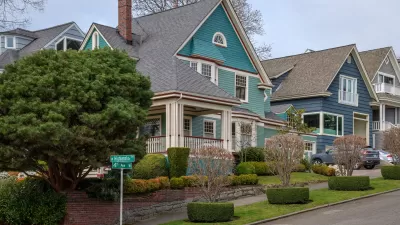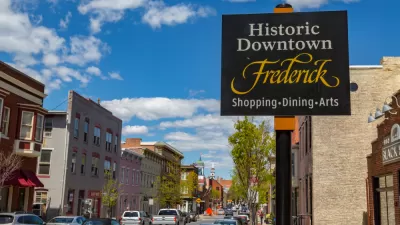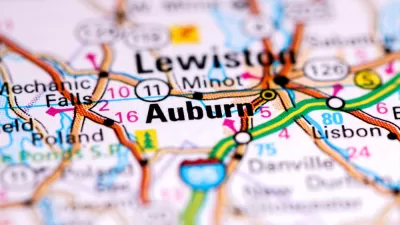Several common assumptions about new urban codes fail to stand up to scrutiny.
Tony Perez writes in Better Cities & Towns:
Since 1981, approximately 400 form-based codes (FBCs) have been prepared for communities across the US, and as of 2012, 252 of them have been adopted. Eighty-two percent of the adoptions have taken place in the past 10 years. But as exciting as that may be, what’s more exciting is that these numbers are miniscule when you think about how many communities exist in the U.S. If this reform of conventional zoning is increasingly gaining acceptance and being applied to larger areas, why are there still so many misconceptions?"
Despite a wide variety of improvements in how form-based codes are strategized, prepared, and used, many of the planners, planning commissioners, elected officials, members of the public, and code practitioners I meet continue to harbor misconceptions or misunderstandings about these codes. Here are the ones I encounter most:
FBC dictates architecture. Some of these codes do prescribe details about architecture, but most do not. Perhaps because many of the early codes were for greenfield projects where strong architectural direction was needed or desired, the perception is that a FBC always regulates architecture. Yet the majority of codes I’ve prepared and reviewed (30 authored or co-authored, 10 peer-reviewed, 9 U.S. states, 2 foreign countries) do not regulate architecture. I’ve prepared codes where regulation of architecture (style) was important for a historic area, but those requirements did not apply anywhere else. The “form” in form-based codes may mean architecture, but not necessarily. Form can refer to physical character at many different scales—the scale of a region, community, neighborhood, corridor, block, or building.
The rest of the list is available by clicking on the link below.
FULL STORY: Top 10 Misconceptions about form-based codes

Planetizen Federal Action Tracker
A weekly monitor of how Trump’s orders and actions are impacting planners and planning in America.

Maui's Vacation Rental Debate Turns Ugly
Verbal attacks, misinformation campaigns and fistfights plague a high-stakes debate to convert thousands of vacation rentals into long-term housing.

San Francisco Suspends Traffic Calming Amidst Record Deaths
Citing “a challenging fiscal landscape,” the city will cease the program on the heels of 42 traffic deaths, including 24 pedestrians.

Amtrak Rolls Out New Orleans to Alabama “Mardi Gras” Train
The new service will operate morning and evening departures between Mobile and New Orleans.

The Subversive Car-Free Guide to Trump's Great American Road Trip
Car-free ways to access Chicagoland’s best tourist attractions.

San Antonio and Austin are Fusing Into one Massive Megaregion
The region spanning the two central Texas cities is growing fast, posing challenges for local infrastructure and water supplies.
Urban Design for Planners 1: Software Tools
This six-course series explores essential urban design concepts using open source software and equips planners with the tools they need to participate fully in the urban design process.
Planning for Universal Design
Learn the tools for implementing Universal Design in planning regulations.
Heyer Gruel & Associates PA
JM Goldson LLC
Custer County Colorado
City of Camden Redevelopment Agency
City of Astoria
Transportation Research & Education Center (TREC) at Portland State University
Jefferson Parish Government
Camden Redevelopment Agency
City of Claremont





























